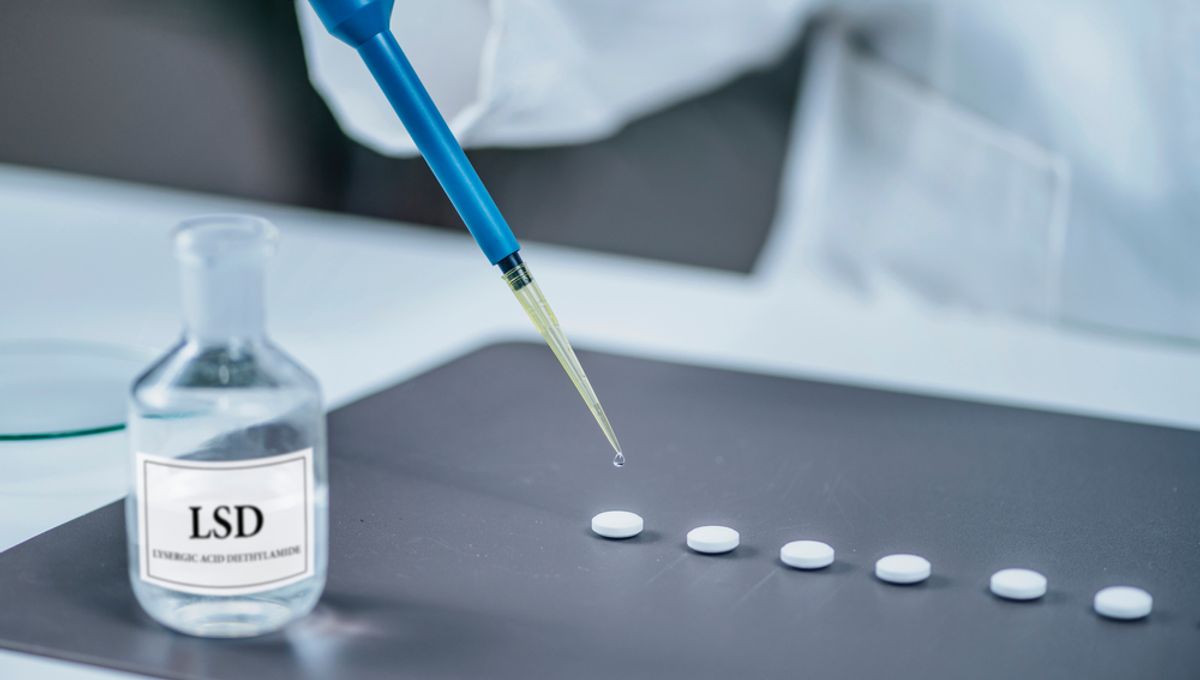
Psychedelic psychotherapy is currently experiencing its second wave of interest, with studies over the past decade revealing the therapeutic potential of psilocybin and other mind-altering substances. A previous boom in psychedelic research occurred between the 1950s and 1970s, when a lack of ethical standards allowed for some shockingly irresponsible experiments to be performed on nonconsenting participants – including inmates in prisons across Canada.
Recounting this shady history of abuse and exploitation in a new paper, Andrew Jones from the University of Toronto says the use of LSD as a “correctional tool” in Canadian facilities should serve as an example of how not to use psychedelic substances. Beginning in the late 50s, he says that “enthusiasm about the drug’s potential led several experienced and knowledgeable psychedelic therapists to use it on vulnerable populations in diverse institutional settings, such as correctional facilities.”
The misuse of acid took off after psychiatrists Duncan Blewett and Nicholas Chwelos – who worked for Saskatchewan’s Department of Psychiatric Research – recommended LSD-assisted psychotherapy to treat a group of young, repeat offenders in a prison in the city of Regina in 1958. Shortly afterwards, the pair received permission to dose approximately 30 inmates, though results were far less positive than the authorities had hoped for.
Rather than helping the prisoners rehabilitate, the drug left many of them “confused, tense and suspicious”, ultimately leading Blewett to conclude that LSD “offers less to prisoners” than it does to other populations.
Yet the failure of this experiment didn’t dampen the hopes of Mark Eveson, who was appointed chief psychologist at the Kingston Prison for Women in Ontario in 1961. “LSD therapy, he proposed, presented the ‘possibility of ending criminal involvement’ in ‘approximately eight hours,’ a fact that should ‘arouse intense interest in all concerned in rehabilitation’,” writes Jones.
After giving high doses of the drug – sometimes in combination with Ritalin – to 23 women at the prison, Eveson and the Canadian government were later sued by inmate Dorothy Proctor, who claimed she had not consented to taking LSD and was made to take the drug in solitary confinement.
The case was eventually settled out of court, although this would not be the end of the legal problems faced by unscrupulous psychedelic therapists. In 1967, psychiatrist Elliot Barker introduced what he called the “Total Encounter Capsule” as a form of treatment at the Oakridge maximum-security psychiatric hospital for the “criminally insane” in Ontario.
Essentially just a steel room where inmates would spend days at a time, the “capsule” became a laboratory for some of Barker’s wildly unethical experiments. For instance, Jones recounts how, “On some occasions, to promote ‘genuine encounter between persons,’ the inmates would sit in the capsule while naked or after taking LSD.”
The program was later taken over by Gary Maier, who used to give acid to pairs of inmates inside the capsule, allowing them to “trip sit” for each other with no professional supervision. As nuts as all this sounds, an official report into the goings-on at Oakridge later concluded that “psychopaths are being treated with success.”
Unfortunately for Barker, Maier, and the Canadian government, however, times eventually changed and all three were sued by the Oakridge inmates for “inhumane treatment” in 2001. The victims eventually won their case in 2021, more than 50 years after the abuse had taken place.
Underlining the extent of this malpractice, Jones says “the Oakridge experiment remains one of the most morally shocking examples of LSD therapy.”
“Those working with psychedelics today should keep LSD’s history as a correctional tool in mind when championing the use of these drugs,” he concludes.
The study is published in the journal Frontiers in Psychology.
Source Link: Canada’s Dark History Of Giving LSD To Prisoners